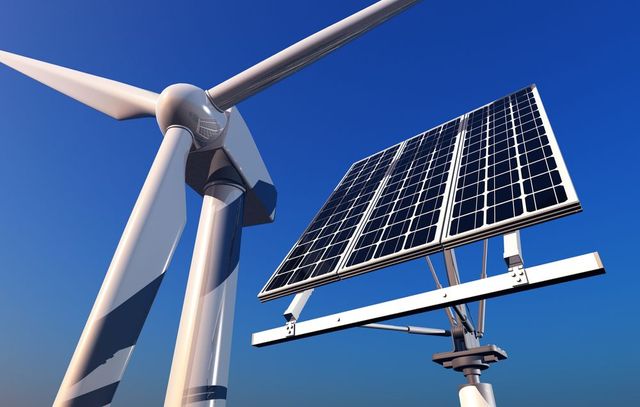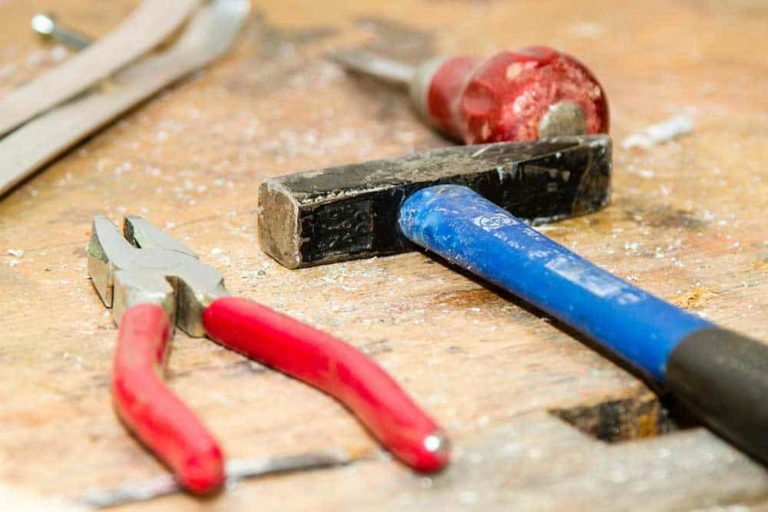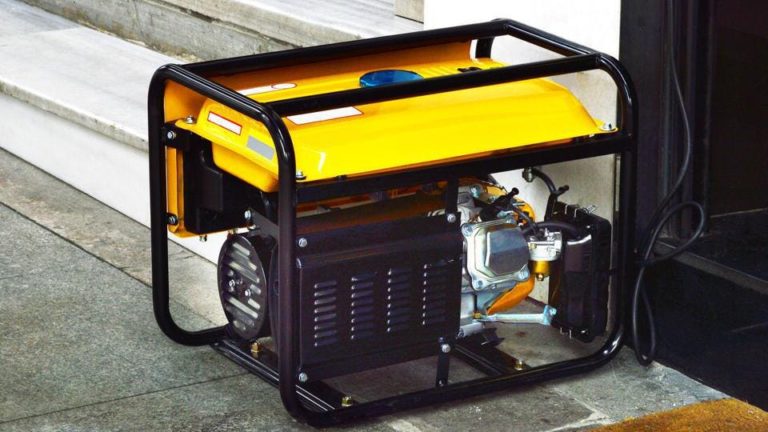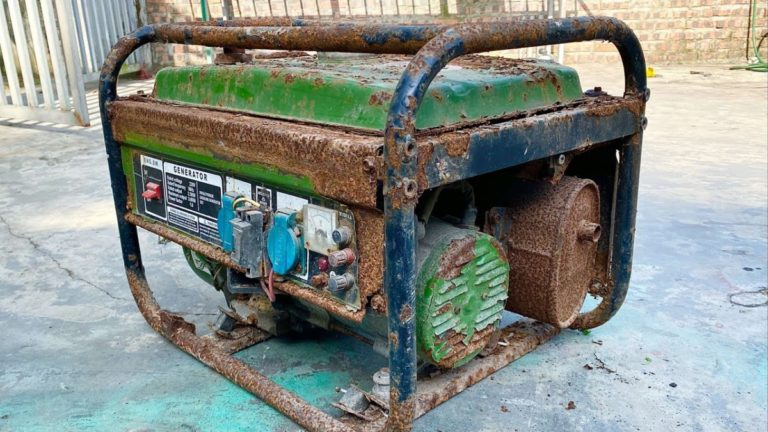As a homesteader looking to live sustainably and self-sufficiently, exploring off-grid energy options is an essential step towards reducing your carbon footprint and reliance on public utilities.
With the right combination of renewable energy sources and smart technology, you can power your homestead with clean energy and maintain a reliable supply despite being off the grid.
We’ll dive into some actionable tips for evaluating and implementing the best off-grid energy options for your unique homestead needs.
Solar Energy
Solar energy is a popular option for off-grid homesteads. It’s clean, renewable, and can be generated on-site. Consider installing solar panels to power your home and any other energy-intensive appliances you may have.
Installing solar panels on your property can provide a reliable source of energy for powering your home and other energy-intensive appliances such as refrigerators, lights, and water pumps.
Solar energy is generated on-site, reducing your reliance on external power sources and providing a cost-effective solution for off-grid living.
Solar energy is a renewable resource, meaning that it is sustainable and has a minimal impact on the environment.
In fact, many solar panels are designed to be recyclable and long-lasting, reducing waste and minimizing the need for replacement.
With proper maintenance, a solar panel system can last for decades, providing a reliable source of energy for your off-grid homestead.
For example, wind energy and hydro energy can be used in combination with solar energy to provide a more consistent and reliable source of power.
Energy storage solutions such as batteries can be used to store excess energy generated by solar panels during the day for use at night or during periods of low sunlight.
By exploring a variety of off-grid energy options and incorporating them into your homestead, you can create a self-sufficient and sustainable energy system that meets your needs and reduces your reliance on external power sources.
Wind Energy
Wind energy is another great option for off-grid homesteads. It’s a bit more expensive than solar, but it can be just as effective. Consider installing a wind turbine to generate electricity.
Wind energy is an excellent option for off-grid homesteads looking to harness a renewable source of power.
While it may be slightly more expensive than solar energy, wind energy can be just as effective and can provide a reliable source of power for your homestead.
One of the main advantages of wind energy is that it can be used to generate electricity 24/7, even on cloudy or calm days, making it a great choice for homesteads that require a constant source of power.
Wind turbines can be installed on a hill or mountain, taking advantage of the natural wind flow, and can be easily integrated into an existing electrical system.
With proper maintenance, a wind turbine can last for many years and provide a significant amount of power, making it a worthwhile investment for off-grid homesteads looking to reduce their reliance on the grid and become more self-sufficient.
When considering wind energy for your off-grid homestead, it’s important to take into account the wind speeds in your area, as well as the distance between your turbine and your home or other energy-using appliances.
This will help you determine the appropriate size and location of your wind turbine, as well as the type of equipment you’ll need to store and convert the energy generated.
It’s important to research and understand the local zoning regulations and any permits or approvals that may be required before installing a wind turbine.
With proper planning and installation, wind energy can be a reliable and effective way to power your off-grid homestead.
Hydro Energy
If you have a stream or pond on your property, you may be able to harness hydro energy to power your homestead. This can be done with a small-scale hydroelectric system or a water wheel.
Hydro Energy: If you have a stream or pond on your property, you may be able to harness hydro energy to power your homestead.
This can be done with a small-scale hydroelectric system or a water wheel.
A hydroelectric system uses the flow of water to generate electricity, while a water wheel uses the water’s gravitational force to turn a wheel, which can then be connected to a generator or other equipment to provide power.
Both options can be scaled down to fit smaller properties and can be customized to meet your specific energy needs.
It is a renewable and sustainable source of energy that is generated without burning any fossil fuels or producing any emissions.
Hydro energy systems can be highly efficient, with some systems capable of achieving an efficiency rate of up to 90%.
This means that a large portion of the energy generated by the system can be used to power your homestead, with very little lost as heat or other forms of energy.
If you are considering installing a hydro energy system on your property, it is important to consult with a professional to determine the feasibility of the project and to ensure that all necessary permits and regulations are in place.
You should consider the size of your property, the flow rate of your stream or pond, and the topography of the area when deciding which type of hydro energy system is best for you.
With the right information and planning, hydro energy can be a reliable and sustainable source of power for your off-grid homestead.
Biomass Energy
Biomass energy is generated from organic matter, such as wood chips or agricultural waste. It can be burned in a furnace or boiler to produce heat and electricity. Consider investing in a biomass generator for your homestead.
Biomass energy is a renewable and sustainable option for generating electricity and heat, especially for those looking to live off the grid.
Biomass energy is produced from organic matter, such as wood chips or agricultural waste, which can be burned in a furnace or boiler to generate heat and electricity.
One of the main benefits of biomass energy is that it can be produced locally, reducing reliance on fossil fuels and supporting local agriculture.
Off grid energy options like biomass generators offer a number of advantages for homesteaders and those looking to live a more self-sufficient lifestyle.
Biomass generators can provide a reliable source of electricity, even in remote locations where traditional power sources may not be available.
They can also be fueled by a variety of organic matter, such as wood chips or agricultural waste, which can be easily sourced from local farms and forests.
Biomass generators can help reduce carbon emissions and support sustainable agriculture practices.
First, you’ll need to determine your energy needs and choose a generator that can meet those needs.
You’ll also need to consider the cost of installation, maintenance, and fuel costs over the long term.
You should research local building codes and regulations to ensure that your biomass generator is installed and operated safely and legally.
Investing in a biomass generator can be a smart choice for those looking to live off the grid and reduce their reliance on fossil fuels.
With proper research and planning, you can find the right biomass generator for your homestead and enjoy a more sustainable and self-sufficient lifestyle.
People looking for alternative energy sources and living off the grid should seriously consider Biomass Energy options for generating electricity, heat, and hot water for the homestead.
Biomass is organic matter such as wood chips, agricultural waste, and can be easily sourced from local farms and forests, reducing carbon emissions and supporting sustainable practices.
To begin, homeowners need to determine their energy needs and choose a generator that can meet those needs while considering the cost of installation, maintenance, and fuel costs over the long term.
After you’ve found a generator that meets your energy needs and budget, It is important to research the safety, environmental and health concerns when using biomass energy.
Biomass generators should meet environmental regulations and should be located at least 50 feet from living areas.
The exhaust from the generator should be properly vented, and you should properly maintain the generator regularly.
To avoid health hazards, keep it away from living areas and avoid handling ash without protective gear.
It’s time to consider sustainable energy sources such as wind or solar power when designing your homestead.
By combining biomass energy with renewable energy sources, your homestead will have a reliable, clean, sustainable energy source.
Living off the grid can be fulfilling and rewarding as it promotes a more sustainable lifestyle that is good for the environment and personal well-being.
If you are prepared to take the necessary steps to reduce energy costs, increase energy efficiency, and produce your own energy, then you are well on your way to a more sustainable and self-sufficient lifestyle.
Off grid energy options are available to provide a reliable source of power when there is no access to mains electricity or when self-sufficiency and a more sustainable lifestyle is desired.
The following are two types of off grid energy options to consider
Solar Power: Harnessing the power of the sun can be done through the installation of solar panels that convert sunlight into usable energy.
This energy is clean, renewable, and can provide a consistent source of power for a homestead.
Solar panels can last for decades, making them a long-term and sustainable solution for off-grid energy.
Wind Power: Using wind to generate energy is another off-grid option.
Wind turbines can be installed in areas with sufficient wind to convert wind energy into electrical energy.
Wind turbines can be expensive to install, but they can also provide a reliable source of power and reduce dependence on fossil fuels.
Off grid energy options are available to provide a reliable source of power when there is no access to mains electricity or when self-sufficiency and a more sustainable lifestyle is desired.
The following are two types of off grid energy options to consider
Solar Power: Harnessing the power of the sun can be done through the installation of solar panels that convert sunlight into usable energy.
This energy is clean, renewable, and can provide a consistent source of power for a homestead.
Solar panels can last for decades, making them a long-term and cost-effective option for off grid energy.
Hydroelectric Power: If your homestead or farm is located near a stream or river, hydroelectric power may be an option to consider.
A small hydroelectric turbine can be installed to generate electricity and provide a reliable source of power.
This option is particularly beneficial for farms and homesteads that have a steady supply of water.
It’s important to note that a license may be required to harness the power of a stream or river, so be sure to research local regulations and requirements before installation.
Geothermal Energy
Geothermal energy is generated from the heat of the earth. It can be used for both heating and cooling, and can be a great option for off-grid homesteads. Consider installing a geothermal system to take advantage of this renewable energy source.
Geothermal energy is a fantastic option for off-grid homesteads, as it utilizes the natural heat of the earth to provide both heating and cooling.
This renewable energy source can be harnessed through a geothermal system, which involves installing a network of pipes underground to capture the earth’s heat.
This heat can then be used to warm your home during the cold winter months, and to cool it during the hot summer months.
Geothermal energy is a highly efficient and reliable source of power, as it is not dependent on weather conditions like solar and wind energy.
In terms of off-grid energy options, geothermal energy is one of the most promising and cost-effective solutions.
By installing a geothermal system, you can enjoy a reliable and sustainable source of energy that can significantly reduce your reliance on the grid.
Moreover, geothermal energy is a versatile and long-lasting source of power, as it can be used for both heating and cooling, and can be easily scaled up or down depending on your energy needs.
Overall, geothermal energy is an excellent option for off-grid homesteads looking to reduce their carbon footprint and reliance on non-renewable energy sources.
By investing in a geothermal system, you can enjoy a sustainable and reliable source of energy that can help power your home for years to come.
Biodiesel
Biodiesel is a renewable fuel source made from vegetable oils or animal fats. It can be used to power diesel engines, and can be produced on-site at your homestead. Consider investing in a biodiesel system to generate electricity and fuel for your vehicles.
Biodiesel is a versatile and sustainable energy source that can power your vehicles and provide electricity for your homestead.
It’s made from vegetable oils or animal fats, which can be sourced locally, and can be produced on-site using a biodiesel system.
This system can convert your waste vegetable oil or animal fat into clean-burning biodiesel, which can then be used to power your vehicles, generators, and other diesel-powered equipment.
Biodiesel can be used as a standalone energy source or as a complement to other off-grid energy options such as solar or wind power.
By investing in a biodiesel system, you can reduce your reliance on fossil fuels and lower your carbon footprint.
Plus, producing your own biodiesel can be a cost-effective and empowering way to take control of your energy needs and reduce your dependence on the grid.
Tractor Power
If you have a tractor on your homestead, you may be able to use it to generate electricity. Attach a generator to the tractor’s power take-off (PTO) shaft to create a self-sufficient power source.
Tractor Power: If you have a tractor on your homestead, you may be able to use it to generate electricity.
Attaching a generator to the tractor’s power take-off (PTO) shaft can create a self-sufficient power source.
This option is ideal for farms or homesteads with a substantial amount of land and a need for reliable, off-grid energy.
By using the tractor’s mechanical power to generate electricity, you can reduce your reliance on the grid and enjoy a more sustainable, independent energy source.
These options can help you achieve complete energy independence and reduce your carbon footprint, making your homestead more environmentally friendly and self-sufficient.
Composting Toilets
Composting toilets are a great way to reduce your homestead’s water and energy usage. These toilets use natural processes to decompose human waste, and can also generate heat for your home. Consider investing in a composting toilet system for your homestead.
Composting toilets are a fantastic solution for reducing water and energy usage on your off-grid homestead.
These innovative toilets utilize natural processes to decompose human waste, producing a nutrient-rich compost that can be used to fertilize your gardens and landscaping.
By harnessing the power of nature, composting toilets can significantly decrease your homestead’s reliance on precious water and energy resources.
Not only do composting toilets conserve resources, but they also offer a host of other benefits.
For example, many composting toilet systems generate heat, which can be used to warm your home or provide hot water.
These systems can be designed to be self-sufficient, meaning they do not require any external energy or water sources.
This makes them an ideal choice for off-grid homesteads looking to reduce their carbon footprint and become more self-reliant.
Off-grid energy options are a great way to supplement your homestead’s power needs.
Consider investing in renewable energy sources like solar, wind, or hydro power to provide the energy you need for your composting toilet system.
Not only do these options reduce your reliance on traditional energy sources, but they can also be more cost-effective in the long run.
By exploring off-grid energy options, you can ensure that your composting toilet system is powered by a reliable and sustainable source of energy.
Want More? Dive Deeper Here!
Hey there! If you’re the type who loves going down the rabbit hole of information (like we do), you’re in the right spot. We’ve pulled together some cool reads and resources that dive a bit deeper into the stuff we chat about on our site. Whether you’re just killing time or super into the topic, these picks might just be what you’re looking for. Happy reading!






